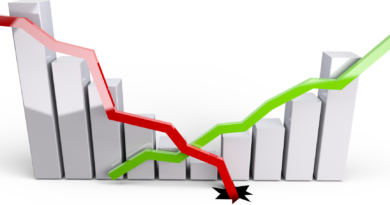Why Do People Buy Call Options?
Calls are one of the two types of options derivative of underlying stock. They give the owner the right to buy stock at a certain strike price before the time expires. But, why buy call options with or instead of stock? There are several reasons, including speculative trading and hedging. We will explore these reasons and more throughout the article. If you are having problems understanding some of the terms we use, check out our glossary.
Reasons To Buy Calls
Speculative Trading
One of the main uses of calls is for more leverage in speculative trading. Speculative trading is trading a stock or option with a chance of financial gain or loss. Whether trading stocks or calls you can only lose as much money as use to buy them. This is not necessarily true with puts because they require you to borrow options.
The reason calls are preferred over socks by many traders is that they can make a higher percentage gain out of a lower initial cost. This is due to leverage. Leverage in stock trading is the use of borrowed capital to maximize your return, allowing the trader to put up less assets than what would normally be required for the trade. Leverage can be risky because it magnifies gains and losses. If the stock goes up a trader will gain a higher percentage gain from buying a call than from buying the underlying stock.
Another way to increase leverage is to buy on margin. This refers to buying stock or options with money borrowed from a broker. This is extremely risky because the trader will now owe money if the stock goes the wrong way (down, in the case of a call). It is not recommended for beginners or hobbyist since its basically gambling with someone else’s money that you have to pay back later. It is probably better to stick to using options, at least, until you have a lot of experience as a trader.
On the opposite end of the spectrum, a safer and yet less profitable way to trade calls is with covered calls. Covered calls are calls that the seller (writer) owns enough of the underlying stock to cover the cost of a call if it is called. These are more relevant when it comes to selling calls, but suffice to say, they have less leverage than naked calls due to the larger initial investment they require.
Hedging
The original reason for trading calls was to help traders hedge their bets when they trade stocks. Hedging is a technique used to minimize or eliminate risk from an investment. This is ,however, the upside of hedging. The down side is that it almost always leads to a smaller return. In many ways, it uses calls in the opposite way as they are leveraged on speculative trading side of things.
The way that calls are used for hedging is actually very simple. Let’s say you buy 100 shares of of a stock for $10 per share, and buy a call for a week with a strike price of $9 per share. this means if the stock drops to $8 per share in that week, the you could call the call and only lose $100 instead of $200. Since the call cost money to buy too (the premium), it cuts into the profit from the investment if the stock grew in value and increases the loss if the loss was not enough to the worth calling the call.
One reason that buying calls is superior to other forms of hedging, such as buying a diverse stock portfolio is it is usually cheaper. Options, due to their expiration dates, are usually much cheaper then their underlying stock; while buying a lot of different stocks that hedge each other would likely be similar in price to each other as well. Another reason to buy calls is that it’s simpler than stock diversification. A trader can focus on one stock instead of multiple ones.
Other Reasons
Traders also buy options (such as calls) in order to sell them, rather than call them. Options, like stocks, can increase or decrease in value over time. This happens as the call moves closer to its expiration date or the value of the underlying stock changes. The call is more profitable the more in-the-money it is. A call is in-the-money when its strike price is less than the underlying stock’s current price. A call’s price also decreases the closer it gets to its expiration date.
Another reason people buy calls is to make sure they can make a trade if the stock falls to, or below, the strike price. No matter how closely a trader watches the stock price, or even if they have a sell order to sell a stock if it falls to a certain amount, they can’t be certain they will be able to sell it for the price they want. the price might just drop too quickly. The call contract gives the security that the sell order lacks. The seller of the call (the writer) is obliged to sell the stock to the trader at the agreed upon strike price, even if it is lower than its current value.
Conclusion
The main reasons that traders buy calls are for speculative trading or hedging purposes. When used for speculative trading, calls increase leverage in a trade. This allows a greater percentage gain for less investment spent. When used for hedging purposes, calls decrease risk in a trade by allowing you to buy stock at a strike price instead of the current price. Traders also buy options to sell them like stocks and to protect them from large stock drops. These are more ways for traders to gain more profit, or protect themselves from risk, respectively.
I hope this has helped you understand why traders buy call options. Have a good day, and happy trading!





Pingback: Disclaimers: Risks and Benefits of Trading Options - Options Pie
Pingback: ETF Funds With Option Trades: Benefits of Option ETFs - Options Pie